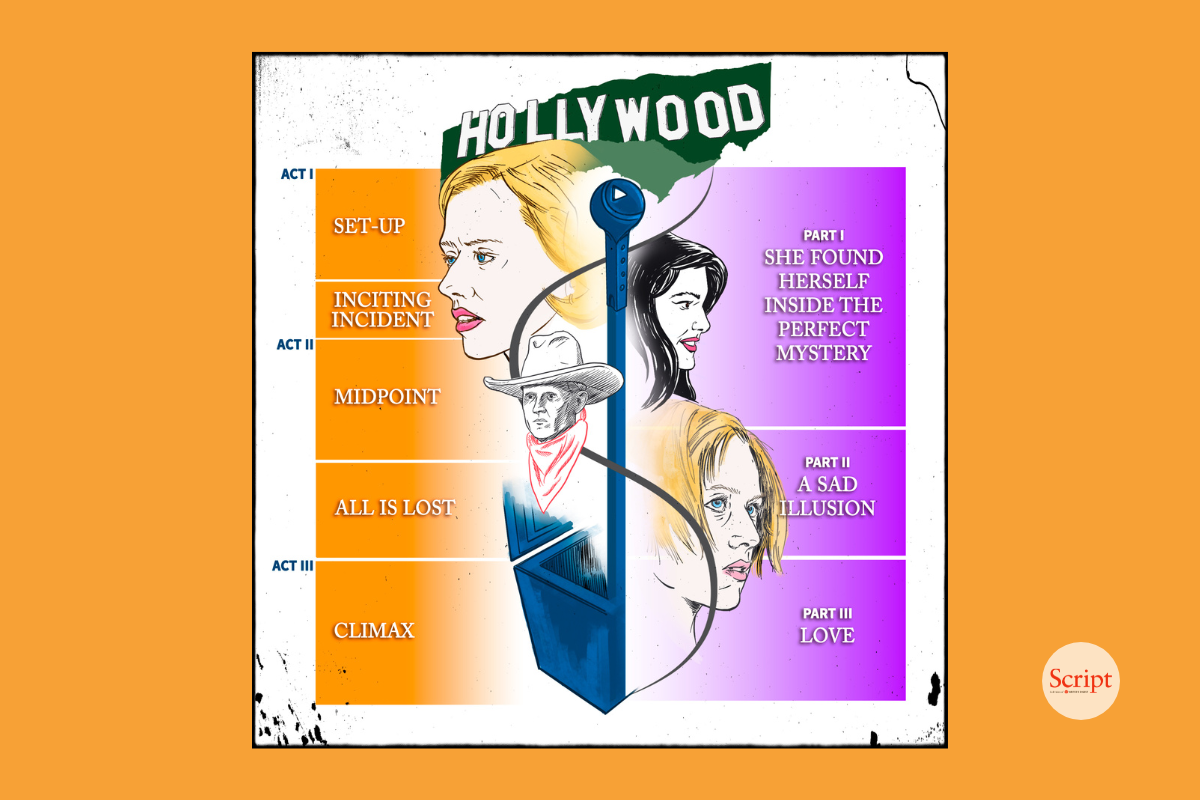“Write Young!”: The Art of Deciphering Industry Script Notes
Writers need to acquire a certain amount of marketing and business savvy and, most of all, they need to be excellent communicators. That’s why for many aspiring screenwriters, that first set of cryptic story notes they receive from industry professionals can be downright intimidating.
Writers today need to know more than just how to write a compelling story. They need to be champions of their own work. They need to acquire a certain amount of marketing and business savvy and, most of all, they need to be excellent communicators.
That’s why for many aspiring screenwriters, that first set of cryptic story notes they receive from industry professionals can be downright intimidating. Here’s a sampling of some of the more head-scratching story notes I’ve received from Hollywood:
- More white on the page
- Lockup IP?
- Cheat the angles
- Write Young!
Believe it or not, Producers/Directors/Studio Executives weren’t trying to be inarticulate when they provided these notes for me to improve my writing. They were simply using a parlance that I was unfamiliar with and didn’t have the time or inclination to share in simple English what they meant. And as a young scribe, I had sense enough to know it was my job to decipher these notes and either accept or reject them in my next draft. I needed to figure out what in the hell they meant and turned to a seasoned professional to give me a clue. I went to see Agent Bob.
Agent Bob had been in the industry a long time, decades in fact. I’d met him at an industry party up in the Hollywood Hills at what I was told later was the former home (and currently haunted) residence of the one and only Anne Baxter. For those not familiar with Golden Age Hollywood, Anne was a major star and broke through in the early 1950’s with All About Eve which, ironically, was a sendup of the star-making industry itself set on Broadway.
Bob had been one of Anne’s representatives during the latter-half of her career and, now retired, was available for kids like me to ask stupid industry questions. All I had to do was buy Bob a Caffè Latte at the old Farmer’s Market located literally across the street from the Writers Guild of America, west’s offices.
The Farmer’s Market was a bevy of activity for the “old guard” of producers, agents, directors, and actors who once reigned over Hollywood’s Golden Age. When I first hit town in the late 90s, you could still find them getting together for weekly confabs to discuss how the town was going to hell. I looked up to these aging insiders and grabbed up every little crumb they would share with me about how this incredibly complex and confusing industry worked.
I met Bob one afternoon at the Market. He was comfortably ensconced in his favorite ‘gunfighter’ seat, where he could see everyone and his back was turned to no one. Bob was talking with a young man wearing a baseball cap, shades, and newly grown beard. I had grown a beard recently myself, and found it a little unsettling when the man sitting with Bob turned and studied my red whiskers without a word. After a moment, Bob and the man said goodbye and he got up and walked away. I leaned over to Bob and asked him who was the young man, expecting it to be another young writer. Bob grinned.
“That’s Matthew Modine. Never admit you don’t know someone, kid.” Bob admonished me. “Everyone in Hollywood has a fragile ego. Just say you love their work and move on.”
I nodded and humbly took my lumps from Agent Bob. He only gave me the time of day because I genuinely wanted to learn and appreciated any advice he was willing to share. Humility is an important skill to have in Hollywood when you’re an up-and-coming writer. After all, I did love his work, and was never shy about asking him questions about him and his long career navigating Tinseltown.
I broke out my draft script and showed Bob the notes I’d received from a producer I was working with at the time. Said producer had a first-look deal with Paramount Pictures and took a year option out on my original property. It was a period piece set during post-World War 2 New York City. By sheer coincidence, it was set in the world of legit theater – as All About Eve had been. Bob sipped his latte and took his time reading the scenes and attached notes. He looked up at me after a time and gave his best psychoanalyst face.
“What do you think they mean?”
I stared at him with an exasperated expression since I had been racking my writer’s brain over the last several days and couldn’t come up with a damn thing.
“I have absolutely no idea.”
Bob took another sip of his latte. I knew I must have tripped over another hidden, Hollywood etiquette-landmine and braced for impact. Instead, the old agent gave it to me straight. “The first thing to know is your producer will never remember what he said.” Bob said, pointing at a note. “As long as whatever revision you come up with here is in service to the story – he’ll happily take credit for it.”
I was blown away by Bob’s insight into the production process. But how was I going to even attempt to address my producer’s notes without having the first clue of what they meant? Bob smiled as he thumbed back through my script. This was my cue to take pen and paper out and prepare to jot everything he said down whether I understood it or not.
“More white on the page means your script is too dense,” Bob explained. “Break up your slug lines and get rid of expositional dialogue.”
Check, next note.
Bob flipped to the next scene.
“Lockup IP?” Bob repeated. “They want to know if you have the rights to the period song playing in the background.”
Check again. Bob was on a roll.
“Cheat the angles means you have to figure out how to make this action scene cheaper with fewer locations.”
I scribbled and smiled. Now came the big Kahuna of my story notes.
“Write Young!” This one stumped even Bob. He sipped his latte and thought. After another moment, Bob looked up and gave an impish grin.
“I have no frickin’ idea, Kid.”
I left Agent Bob that afternoon and ran home with my newfound knowledge of industry lingo. It took me another day or two but I even deciphered what “Write Young!” meant. Bob kept reminding me over and again how Hollywood was all about the "new." Even old stories had to be told in new and interesting ways to make them relevant to a younger audience. I called Bob and pitched him my read on the producer’s note:
“I need to give my script a contemporary feel in spite of the fact it’s a period piece, right?
I could hear Agent Bob laughing on the other end of the line.
“You nailed it, Kid.”
My friend Bob has been gone near twenty years now, and I never did see Anne Baxter’s Ghost haunting her former Hollywood Hills home. But if I ever did, thanks to Agent Bob, I’d know what I’d say to the Golden Age Hollywood Actress’s apparition: “I love your work!”
Ask Jon James Miller for help deciphering the lingo of Hollywood and perfecting your own script with Decoding Story: ScriptXpert Standard Coverage + Development Notes
Jon James Miller won Grand Prize of the 2008 AAA Screenplay Contest sponsored by Creative Screenwriting Magazine, the 2009 Golden Brad for Drama and was a finalist in the 2011 Austin Writers Conference and has adapted that script into a novel, Looking for Garbo. Jon co-wrote Adapting Sideways: How To Turn Your Screenplay Into A Publishable Novel (Komenar Publishing), which chronicled the process of adapting his screenplay to a novel. He is represented by Sandra Dijkstra Literary Agency. Follow Jon on Twitter @JonJimMiller.







